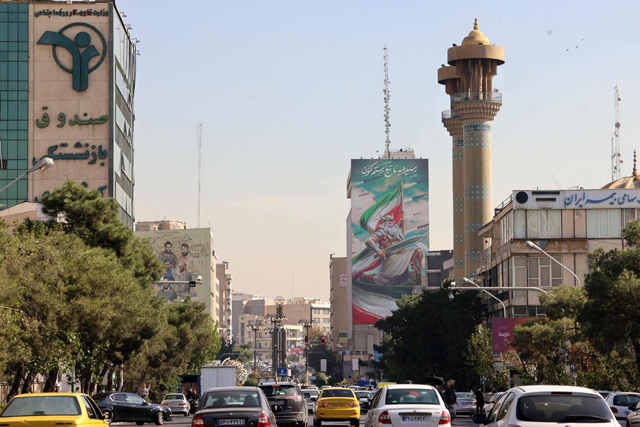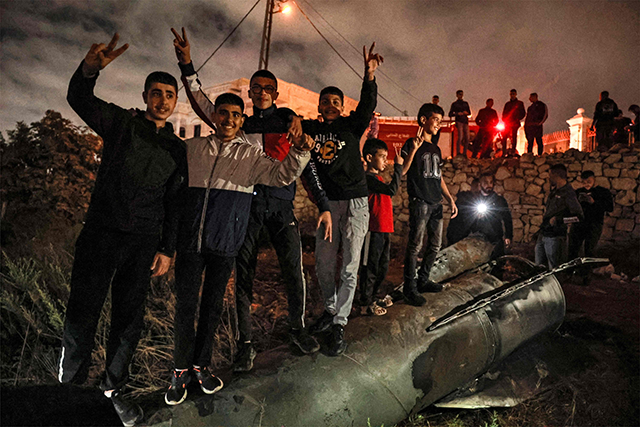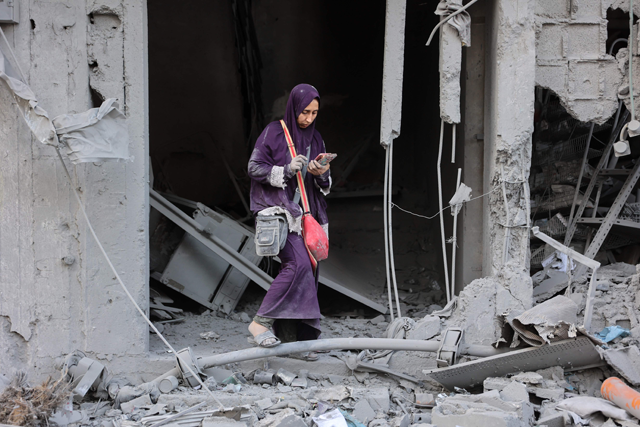TEHRAN — Iran warned on Saturday it would defend itself after Israeli air strikes killed at least two soldiers and further stoked fears of a full-scale war in the Middle East.
Israel warned Iran would "pay a heavy price" if it responded to the strikes, and the United States, Germany and Britain demanded Tehran not escalate the conflict further.
The European Union called for all parties to exercise utmost restraint to avoid an "uncontrollable escalation" in the Middle East, warning: "The dangerous cycle of attacks and retaliations risks causing a further expansion of the regional conflict."
Other countries, including many of Iran's neighbours, condemned Israel's strikes and some, such as Russia, urged both sides to show restraint and avoid what Moscow dubbed a "catastrophic scenario".
The Islamic republic insisted it had the "right and the duty" to defend itself, while its Lebanese ally Hizbollah said it had already launched rocket salvos targeting five residential areas in northern Israel.
The Israeli army said 80 projectiles were fired across the border on Saturday.
Confirming its own strikes after explosions and anti-aircraft fire echoed around Tehran, the Israel military said it had hit Iranian missile factories and military facilities in several regions.
The "retaliatory strike has been completed and the mission was fulfilled", while Israeli aircraft "returned safely", a military spokesman said.
Iran confirmed Israel had targeted military sites around the capital and in other parts of the country, saying the raids caused "limited damage" but killed two soldiers.
Direct attack
Israel had vowed to retaliate after October 1, when Iran fired around 200 missiles in only the second ever direct attack against its arch-foe. Most of those missiles were intercepted but one person was killed.
The Israeli retaliation drew condemnation from Iraq, Pakistan, Syria and Saudi Arabia, which warned against further escalation. Jordan said Israeli jets had not used its airspace. Turkey was one of the most outspoken critics, calling for an end to "terror created by Israel".
Israel is already engaged in combat on two fronts.
Since last month, it has been fighting a war against Hezbollah in Lebanon, including strikes that have killed the group's senior leadership and ground incursions seeking to destroy missile sites.
And, for more than a year since Hamas's October 7, 2023 attack, Israel has been fighting a war in Gaza that has caused mass civilian casualties in the densely populated Palestinian territory.
The United Nations has warned the "darkest moment" of that conflict is unfolding, with Palestinians facing a dire humanitarian crisis and daily Israeli bombing.
Along with Hizbollah and Hamas, Iranian-allied groups in Yemen, Iraq and Syria, have carried out attacks during the fallout from the Gaza war.
At roughly the same time as Israel struck targets in Iran, the Syrian state news agency SANA said an Israeli air attack targeted military positions in central and southern Syria.
'Iranian proxies'
The Islamic Resistance in Iraq, a loose network of pro-Iran factions, claimed responsibility before dawn Saturday for a drone attack against a "military target" in northern Israel.
On Friday, two people died from shrapnel wounds after a Hizbollah rocket barrage into Israel's north, Israeli officials said.
Hezbollah said it had also fired rockets at Israeli soldiers near the south Lebanon village of Aita Al Shaab and launched drones against an Israeli air base south of Tel Aviv.
On Saturday, Lebanon's health ministry said an Israeli strike had killed a Hizbollah-affiliated medic in Bazuriyeh in the south of the country.
US National Security Council spokesman Sean Savett said Israel's response to Iran was "an exercise in self-defence".
He urged Iran to "cease its attacks on Israel so that this cycle of fighting can end without further escalation".
The Israeli military has blamed "Iran and its proxies" in the region for "relentlessly attacking Israel since October 7", when Hamas's attack against Israel triggered the Gaza war.
That attack resulted in the deaths of 1,206 people, mostly civilians, according to an AFP tally of Israeli official figures.
Dozens of hostages seized on that day are still held by militants in Gaza.
Israel's retaliatory campaign has killed 42,924 people in Gaza, the majority civilians, according to figures from the Hamas-run territory's health ministry which the United Nations considers reliable.














